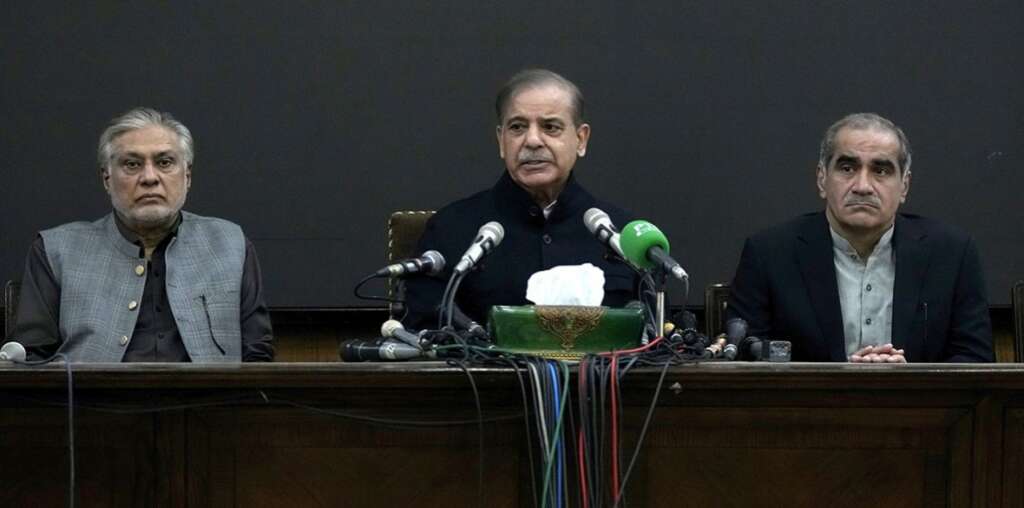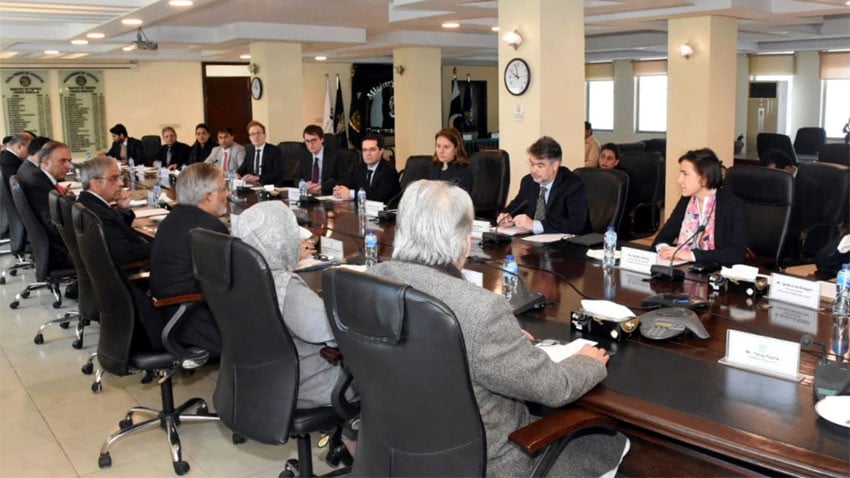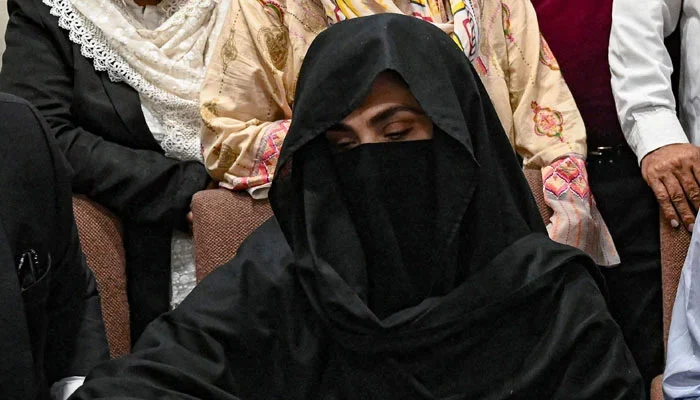Pakistan finds itself at a critical juncture, grappling with a myriad of economic challenges amidst political turbulence and electoral tensions. A recent report by the Institute of International Finance (IIF) sheds light on the country’s fiscal woes, emphasizing the urgent need for reforms to get IMF support amid a weak coalition government and allegations of electoral fraud to save Pakistan from a financial collapse. This article explores the intricate details of Pakistan’s economic landscape, delving into fiscal consolidation, political instability, government initiatives, and collaborative efforts with international partners.
Fiscal Consolidation & Reforms To Elude Financial Collapse:
The IIF report paints a sobering picture of Pakistan’s fiscal health, highlighting the persistent issue of large deficits and escalating public debt. “New estimates now show an overall fiscal deficit of 8.1pc of GDP and a primary deficit of 0.2pc of GDP,” the IIF said. With an overall fiscal deficit of 8.1% of GDP and a primary deficit of 0.2% of GDP, Pakistan faces significant hurdles in meeting its targets for the current financial year. The Ministry of Finance’s data reveals a concerning trend, with the fiscal deficit increasing to 2.6% of GDP in the past seven months alone.
“The biggest challenge will come from fiscal consolidation,” The IIF underscores the importance of fiscal consolidation, stressing that historical precedence and a politically weak government tilt risks to the downside. The report anticipates challenges in meeting tax revenue targets and implementing expenditure cuts, given the country’s turbulent political landscape.
“Turbulent, unstable politics will add to the risks facing Pakistan,” notes the IIF, citing the suspension of cellular services during elections, delays in result announcements, and mass protests as indicators of heightened tensions within the country. The strained relationship between Prime Minister Imran Khan and the military further complicates matters, potentially impeding reform efforts.
Coalition Government Challenges For IMF Support:

The fragility of Pakistan’s coalition government poses additional obstacles to fiscal reforms. The reluctance of the Pakistan Peoples Party (PPP) to support politically costly measures could hinder negotiations with the International Monetary Fund (IMF). Moreover, with a track record of prime ministers failing to complete their terms and the country’s frequent engagements with the IMF, Pakistan’s economic stability remains precarious.
“Without their support, it is hard to see a way forward for the PML-N, which could hinder or prolong negotiations with the IMF,” warns the IIF. The historical precedent of prime ministers failing to complete their terms casts a shadow over Pakistan’s political landscape, while the country’s reliance on IMF programs underscores the urgency of fiscal reforms.
Financial Strain & Tax Evasion amid Financial Collapse:
Defense Minister Khawaja Asif’s candid revelation underscores the severity of Pakistan’s financial predicament. Rampant tax evasion, particularly in sectors like retail and wholesale, exacerbates the nation’s economic challenges. Asif highlights the staggering amount of tax disputes worth trillions lingering in courts, with the burden disproportionately falling on the salaried class.
“As it stands, the government is unable to provide immediate relief to the populace,” remarks Asif, acknowledging the dire economic situation. Only a fraction of the population fulfills their tax duties, further exacerbating the nation’s financial woes. The Tajir Dost Scheme, unveiled by the government, aims to alleviate the tax burden and promote compliance among traders and shopkeepers.
Government Initiatives & Collaborative Efforts to avoid Financial Collapse:
Amidst these challenges, the Pakistani government is taking proactive steps to address economic concerns and foster collaboration with international financial institutions. High-level talks with the World Bank and International Finance Corporation (IFC) demonstrate a commitment to economic advancement through strategic partnerships and investment opportunities.
“The government is committed to creating an enabling environment for private sector investment and ensuring transparency and accountability in financial matters,” affirms the Finance Minister. The recent approval of $149.7 million in financing from the World Bank for two projects underscores international support for Pakistan’s development agenda.
World Bank Financing & Projects Ahead of IMF Support:

The Digital Economy Enhancement Project (DEEP) aims to expand digitally enabled public services and promote financial inclusion ahead of IMF support, particularly for women. Meanwhile, the Sindh Barrages Improvement Project (SBIP) seeks to enhance flood resilience and improve the management of critical infrastructure in the Sindh Province.
“The catastrophic floods that hit Pakistan in 2022 were a tragic reminder of the importance to build resilience to such disasters, including by strengthening barrages and their management,” notes the World Bank Country Director for Pakistan. The projects aim to address pressing challenges and foster sustainable development in key sectors.
IMF Perspectives & Recommendations to Avoid Financial Collapse:

The International Monetary Fund (IMF) underscores the urgency of fiscal reforms in Pakistan, emphasizing the need for decisive action to address fiscal deficits and escalating public debt for IMF support. During recent discussions with Pakistani authorities, the IMF highlighted the importance of meeting tax revenue targets and implementing expenditure cuts to achieve fiscal consolidation.
“Failure to enact necessary reforms could exacerbate Pakistan’s economic challenges and undermine investor confidence,” warns the IMF. The organization calls for political stability and strong leadership to navigate through the current economic turbulence and secure a brighter future for Pakistan.
:
Pakistan’s economic landscape is fraught with challenges, yet amidst the turbulence, there are glimmers of hope. Government initiatives, collaborative efforts with international partners, and investment in key projects offer a pathway towards economic stability and sustainable development. As Pakistan navigates through these challenges, decisive action and steadfast leadership will be essential to secure a brighter future for the nation and its people.



